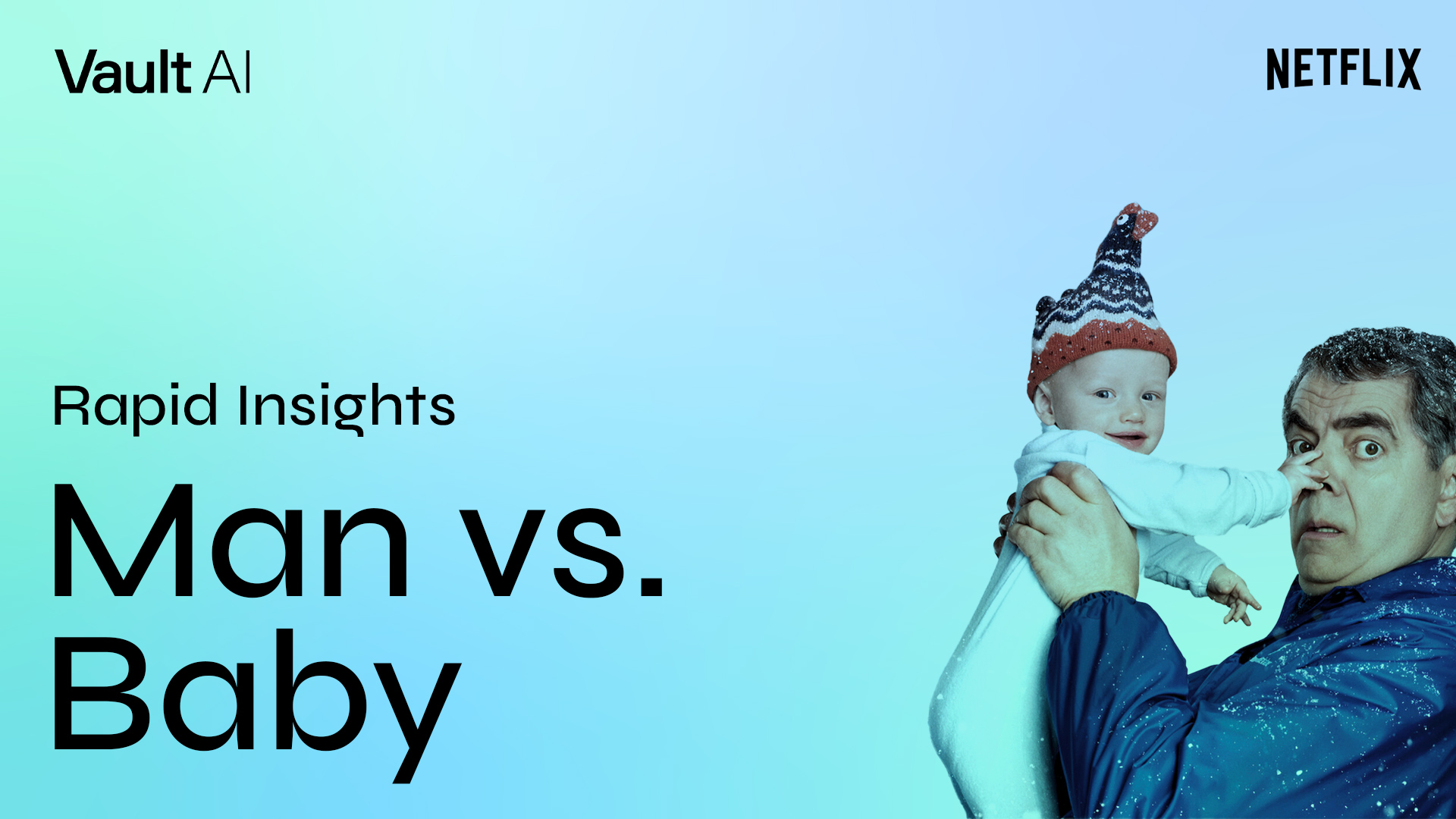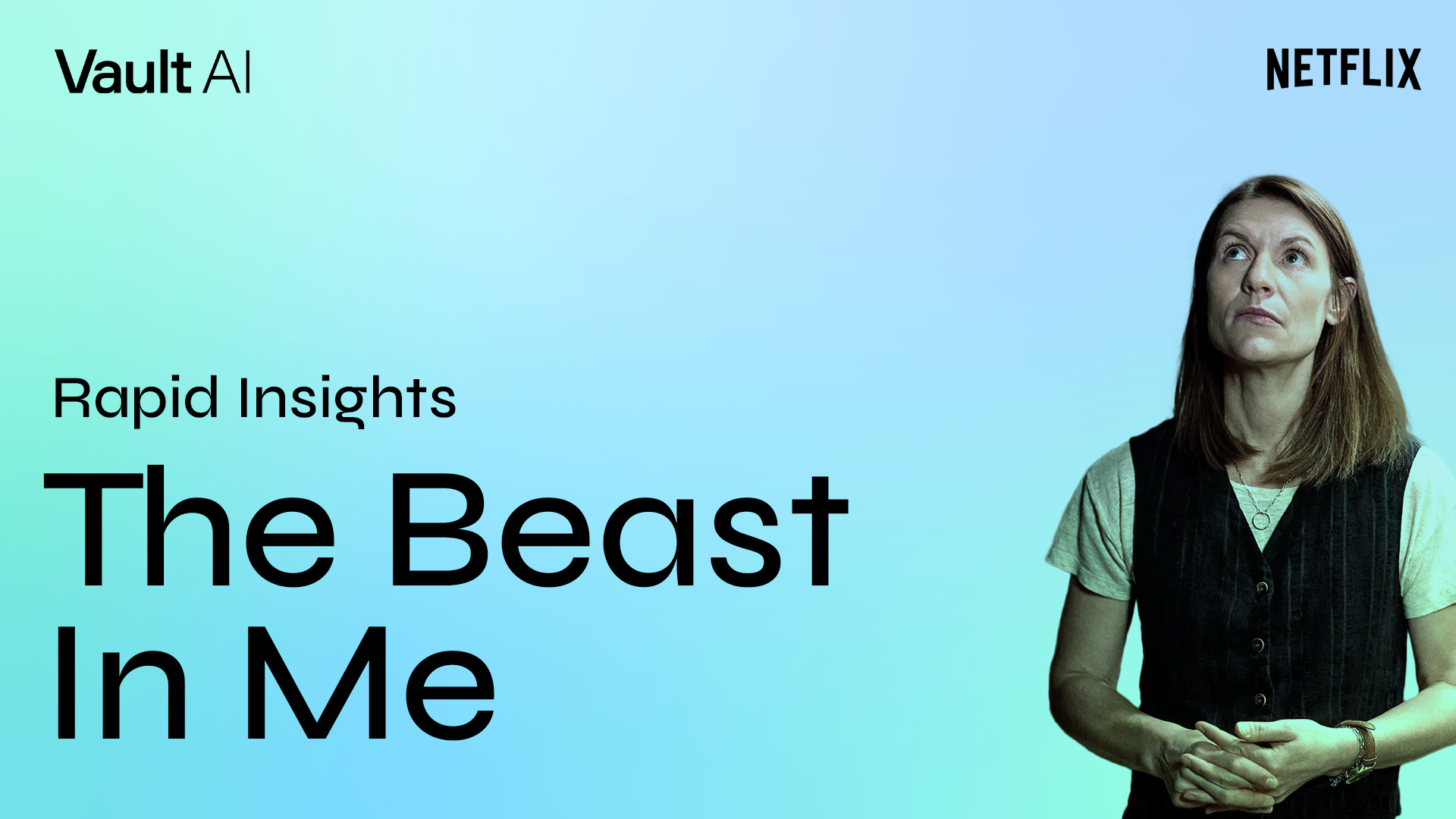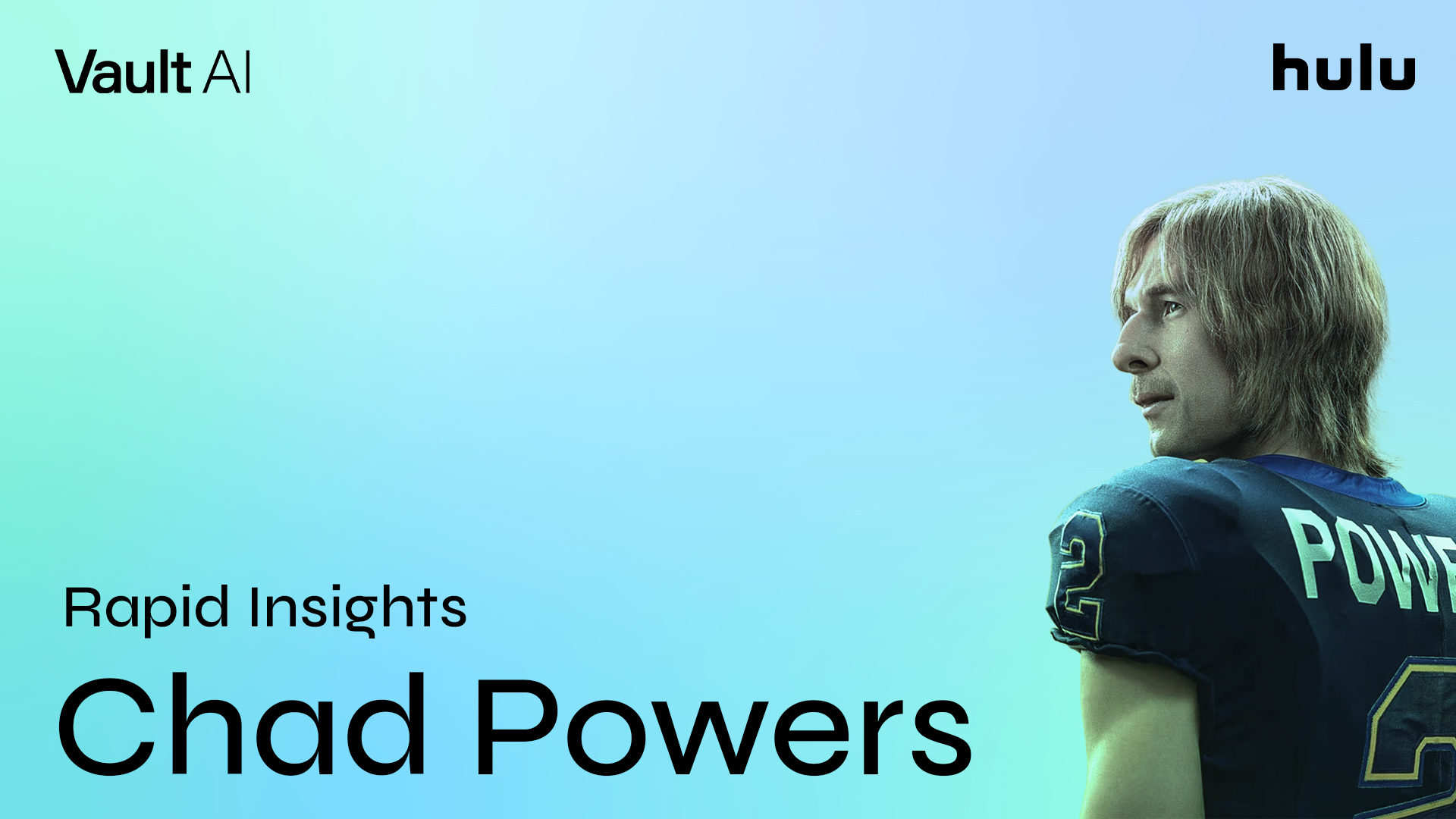Netflix just released a hilarious new sequel to its 2022 British slapstick hit Man vs. Bee, but this time, the titular protagonist faces a very different adversary. Rowan Atkinson returns as Trevor, a hapless and bumbling housesitter who finds himself unexpectedly saddled with an infant after he’s contracted to look after a high-end penthouse for Christmas.
Here’s what you need to know about Man vs. Baby:
Vault AI uses index scores to describe the impact a given story/theme/element will have on specific KPIs:
≤79 Disappointing 80-89 Challenging 90-109 Average 110-119 Promising 120+ Outstanding
Who’s been tuning in for this zany new comedy?
The audience remains gender-balanced (51% men / 49% women) and skewed 30+ (57%), closely mirroring Man vs. Bee. This similarity is striking given the tonal shift from the original’s aggressive, adversarial slapstick to Man vs. Baby’s softer, holiday-inflected setup, suggesting that viewers are following the character and comic engine rather than the specific nature of the conflict.
What does this new sequel have in common with its predecessor?
Over-the-Top Humor. Both series serve up a farcical, exaggerated style of comedy full of the Awkward Misadventures of its child-in-an-adult’s-body (Arrested Development) protagonist. In both series, the hapless Trevor ends up housesitting for a very wealthy couple, and shenanigans immediately ensue (Awkward & Funny Moments) as he attempts to solve outlandish problems in his own ridiculous way (Amateur Hour). The humor is a top driver for both ratings and bingeability, pulling audiences in and keeping them engaged.
What’s setting Man vs. Baby apart?
Warmth and good cheer. Man vs. Bee is a story of adversaries as Trevor goes to increasingly absurd lengths (Scheming, 140) to eliminate a pesky bee that has snuck into the mansion he’s occupying. The tone is sharper and more overtly slapstick as his attempts escalate wildly (Obsession, 115), but while the seemingly immortal bee manages to escape a pillow, tennis racket, plunger, hammer, flamethrower, and rocket, the priceless decor in the mansion is not so lucky (Committing a Crime, 160). In contrast, Man vs. Baby is a story of allies, as Trevor finds himself watching a seemingly abandoned infant over the Christmas holidays (Seasonal Setting, 160). This sequel takes a much softer, more heartwarming tone as Trevor bonds with the baby (Adopted Family, 160), and the comedy arises not out of destruction but rather Trevor’s bumbling attempts to play nursemaid and figure out where the young boy belongs (Feel Good Humor, 125).
What’s most appealing about Man vs. Baby in its native UK?
The lighter comedy. Unlike American audiences, who are most drawn to the show’s more absurd, exaggerated elements (Over-the-Top Humor, 160 US; Amateur Hour, 160 US), British viewers are somewhat more invested in the gentler Feel Good Humor (160 UK), wryer Awkward Misadventures (154 UK), and blunders of Work-Life Balance (132 UK) as Trevor tries and fails to juggle housesitting, the baby, and obligations to his own family over Christmas. However, in spite of their lean-in to the softer tone, UK audiences are not interested in the actual warm fuzzies of the season, with the holiday atmosphere (Seasonal Setting, 59 UK) and sentiments of Adopted Family (55 UK) rating low on the list of drivers and falling into “disappointing” territory (again unlike the US, where both instead land in the “outstanding” range).
—
Most Popular Rapid Insights
Redefine your understanding of TV subgenres
Introducing Genre DNA™ – TV subgenres redefined by groundbreaking AI analysis to reveal the true drivers of viewership.
See the insights that others can’t
Genre DNA™ goes beyond traditional TV genre classifications by analyzing over 1,000 scripted and unscripted series on both linear and SVOD platforms from the last 5 years.
Each Vault Genre DNA™ report offers a precise analysis of your chosen TV subgenre, uncovering its unique drivers of viewership.
*Publicly released trailers for series are evaluated using Vault’s algorithms – utilizing our proprietary 120K+ story element database alongside viewership performance and other datasets – to identify unique combinations of stories, themes, characters, and genre elements that will drive success.










